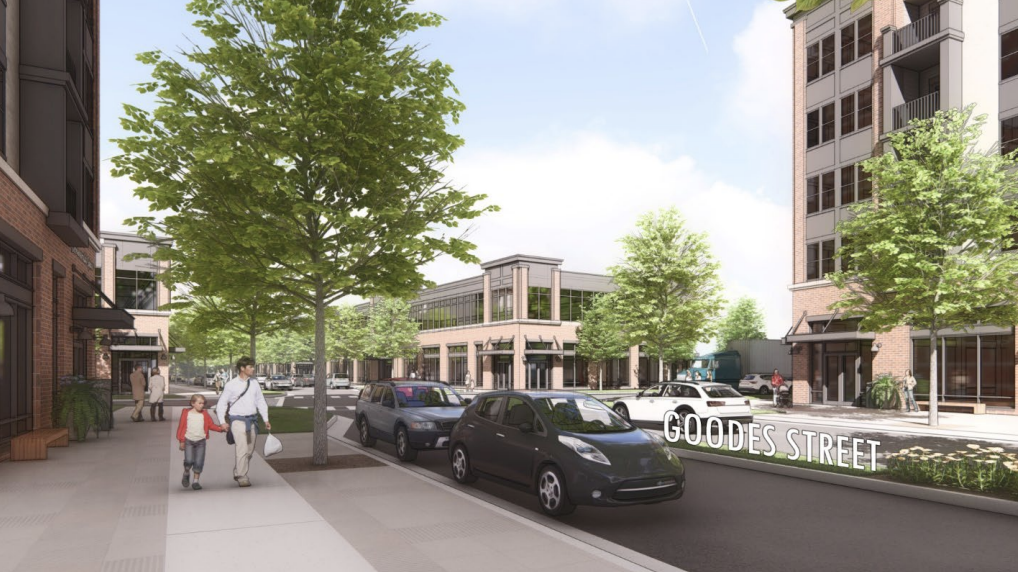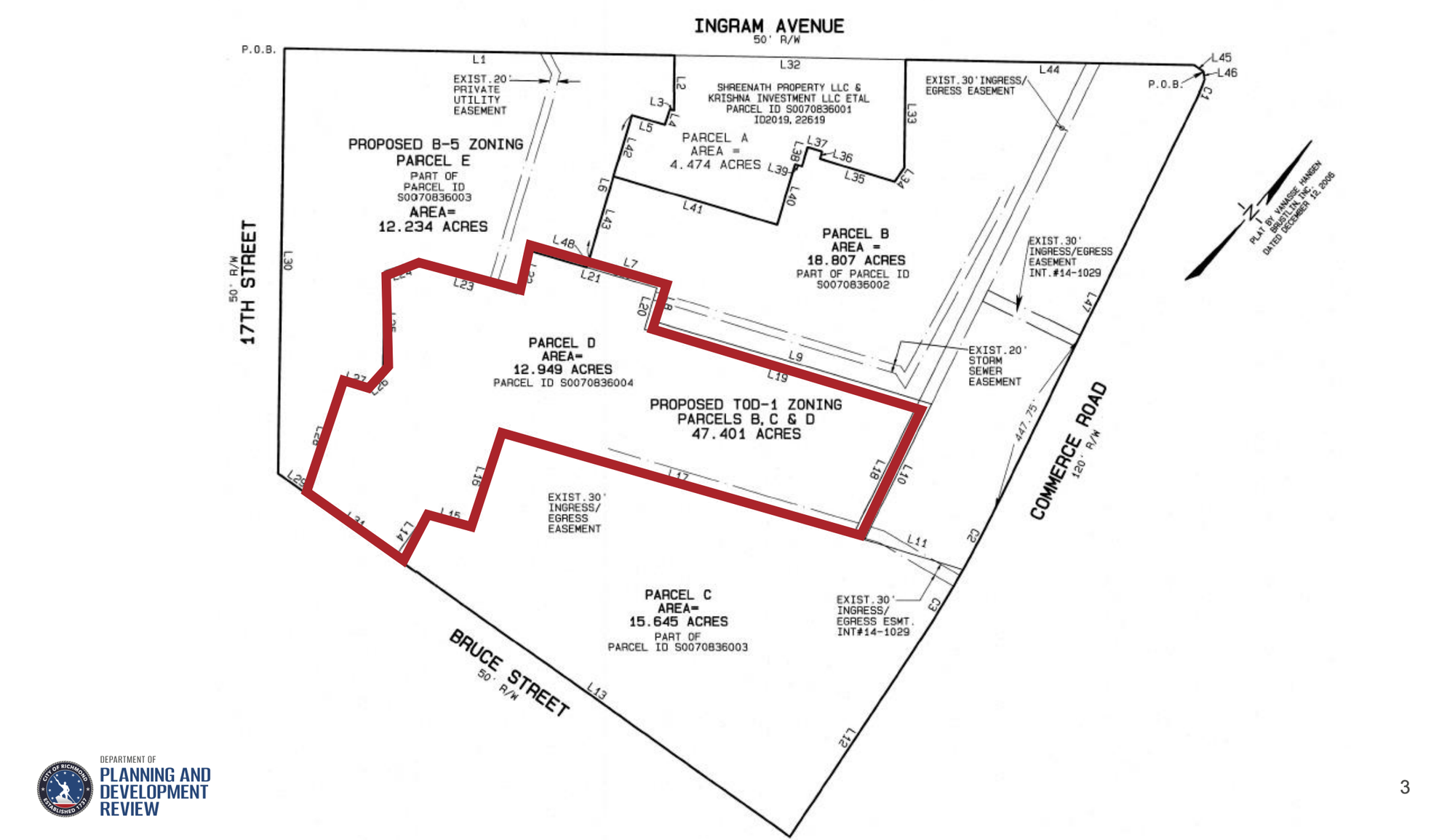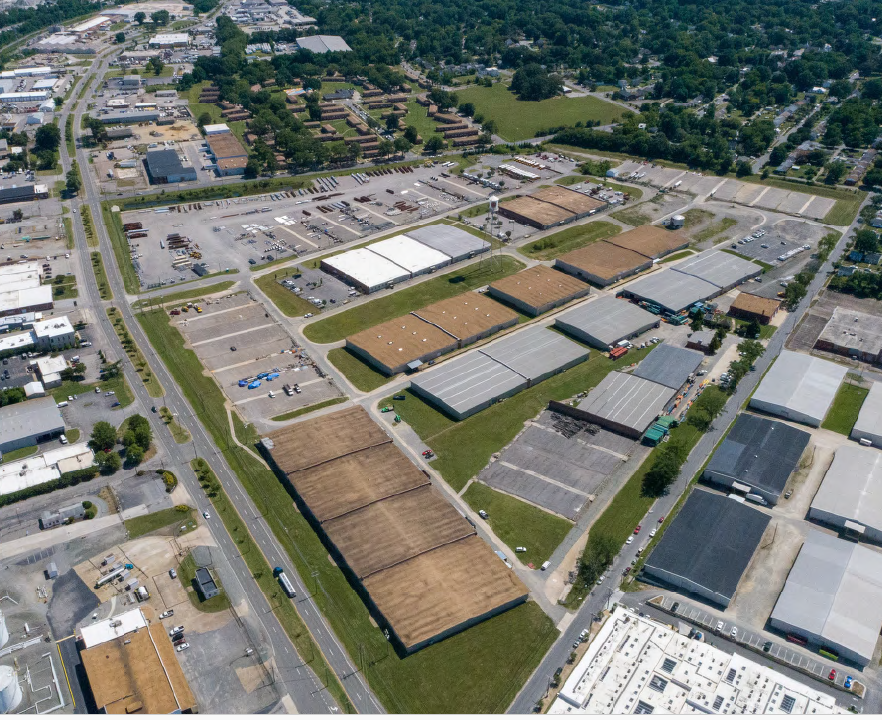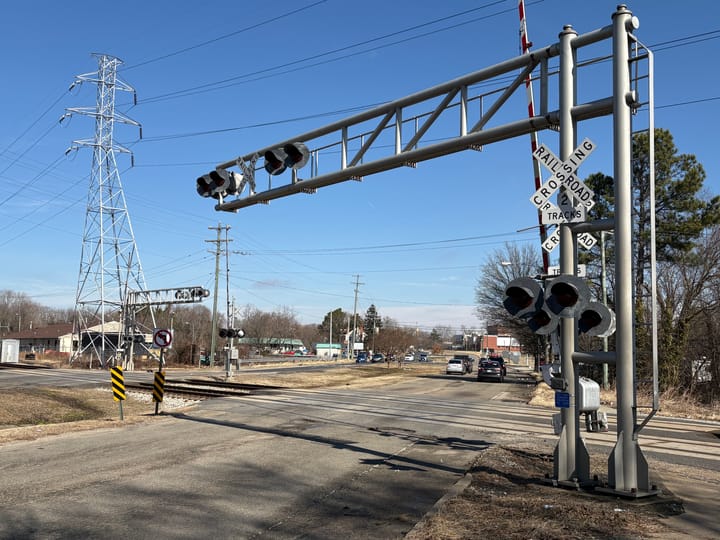Developer eyes former Southside industrial sites for 'generational' redevelopment

Plans are underway for a major transformation of a former industrial area off Commerce Road in South Richmond into a mixed-use neighborhood that would include affordable housing as well as commercial and recreational uses.
This summer, Richmond-based developer Harper Associates is seeking to rezone 47 acres of land it owns at 1220 and 1260 Ingram Ave near the Oak Grove, Bellemeade, Blackwell and Hillside Court neighborhoods as “the first step in a long and generational redevelopment process.”
“From a size and scale perspective, it represents an unparalleled redevelopment opportunity in Richmond, especially south of the James River,” wrote Harper Associates asset manager Will Allen in an email. And given the site’s proximity to Hillside Court, Richmond’s only public housing community in Southside, he continued, the project “represents a catalyst to help change lives in the community.”
At the same time, the city has moved to begin rezoning an adjoining 47-acre parcel it owns at 1240 Ingram Ave. that protrudes “like a finger sticking into the middle” of the Harper properties, in the words of Richmond Planning Director Kevin Vonck.

Officials have been vague about exact plans for that site, which contains a police evidence storage facility and space used by Richmond Public Schools, justifying the rezoning mostly in terms of having consistent classifications throughout the area.
“Is there an anticipation that this property will be sold by the city?” Planning Commission Chair Rodney Poole asked Vonck and then-Interim Chief Administrative Officer Sharon Ebert on July 1 as the body considered a motion to start the rezoning process for the parcel.
“I mean, I will say there's potential that any city property could be sold through a process,” Vonck replied.
Asked about whether Harper is seeking to purchase the city’s property as part of its redevelopment, Allen said that “at risk of mentioning the obvious, incorporating the city property is critical from a land planning perspective.
“Also,” he continued, “it would enhance and maximize the potential for the project to realize guiding principles of Richmond 300, such as high-quality spaces, thriving environments and equitable accessibility.”
While Allen said it was “premature to speculate” on how much investment would be involved in the project as a whole, he noted the site’s size is similar to Libbie Mill in Henrico. That development covers about 90 acres.
The rezoning of the Harper properties, which cleared the Planning Commission July 15 and is expected to come before City Council on Monday, would change the classification of the parcels from light industrial to transit-oriented nodal (TOD-1) and central business (B-5), two districts that allow high density and mixed uses. Some of Richmond’s densest areas, including much of Scott’s Addition and Manchester, have TOD-1 zoning.
Two renderings included in Harper’s application show five-story-high buildings with street-level commercial spaces, generous sidewalks and street trees.
“With a thoughtful integration of residential, commercial, and recreational uses, the development will foster a dynamic, walkable environment where people can live, work, and gather,” the company wrote.
In his email, Allen emphasized that “rezoning is the first step in a redevelopment process to create the opportunity for a mixed-use, mixed-income, mixed density for responsible growth without involuntary displacement.”

Commerce Road, he said, has the infrastructure to support future population growth, while the proposed routing of the Fall Line Trail down the corridor will provide opportunities for more bike and pedestrian connections to other parts of the city.
Outside the Harper project, city planners have already been envisioning the areas northwest of where Commerce and Ingram meet as a good candidate for greater density. Draft maps of new citywide zoning that are under consideration would classify the area as industrial mixed use, with buildings rising six to 13 stories high depending on their proximity to Commerce. A draft comprehensive plan for the Oak Grove, Bellemeade and Hillside Court neighborhoods also calls for greater development along Commerce Road, with mixed use growth that would connect to the existing residential neighborhoods.
West of Commerce, “we’re likely transforming” neighborhoods away from their previous industrial use, said Vonck. But to the east, industrial will remain: “That corridor’s going to be active for a long time.”
Officials have previously fretted about the loss of the city’s limited industrial space, which has the potential to generate larger revenues for a municipality with few areas left to develop. As the Planning Commission considered the motion to begin rezoning Richmond’s property, Vice Chair Elizabeth Greenfield asked about the administration’s feeling on the move, saying, “I thought that we were holding our industrial space prized.”
Vonck, though, said there was “nuance” to the issue. In the Ingram areas, “there’s a lot of warehousing, there's a lot of storage, transportation logistics. There’s some, but not a ton of hard manufacturing that could be hard to relocate or move.”
The sites owned by Harper, which has held them for almost 20 years, currently contain an assortment of 1940s tobacco storage warehouses built out of metal and laydown yards.
Ahead of City Council’s Monday vote, residents and civic associations from the adjoining neighborhoods have filed public comments voicing support for the rezoning even as they urge Harper “to ensure a deep and thorough process of community engagement with Blackwell, Oak Grove, Bellemeade and Hillside Court communities so that residents have a meaningful role in shaping both the design and benefits of the project.”
“I am excited about the possibilities that can come from this project,” numerous residents wrote in a form letter sent to Council. “Vacant warehouses and lots are detrimental to our community along Richmond Highway and Commerce Road. They keep our neighborhoods hot, flooded and generally unsafe. I am equally concerned how this project will raise our real estate taxes and rents. I am requesting that the Applicant work deeply with neighborhood leaders to find ways to deliver outcomes that our communities want.”
Contact Reporter Sarah Vogelsong at svogelsong@richmonder.org
The Richmonder is powered by your donations. For just $9.99 a month, you can join the 1,000+ donors who are keeping quality local journalism alive in Richmond.






